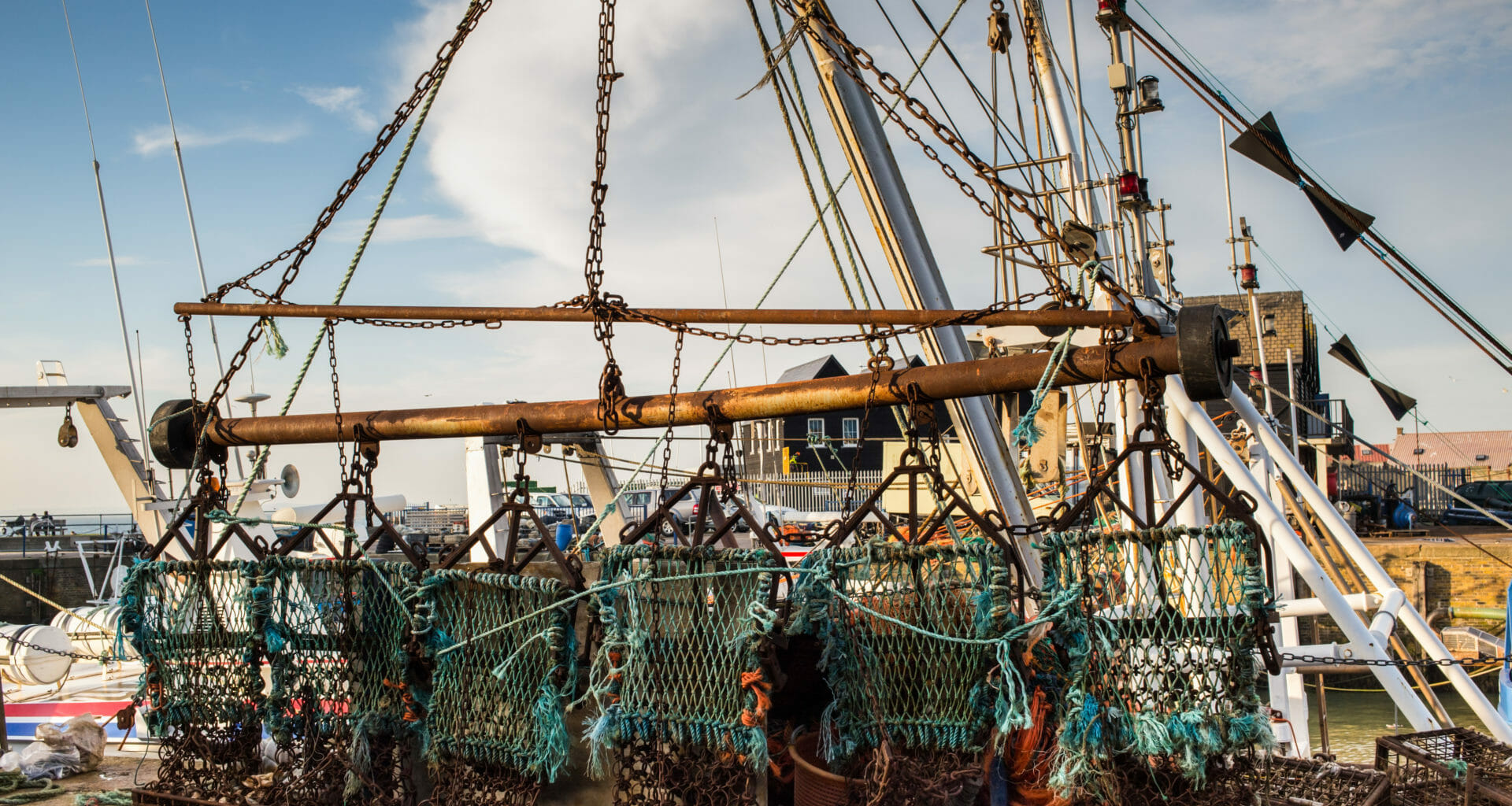Six fishing boats entitled to nearly £22,000 of taxpayers’ money from Covid-19 relief funding have been investigated for illegal scallop dredging in Scotland since March.
Dredging for scallops can damage ecosystems on the seabed and is banned in Scotland’s marine protected areas (MPAs), which are supposed to protect habitats and species in Scottish waters. But illegal fishing, as reported by The Ferret in recent years, remains a problem.
Environment secretary Roseanna Cunningham revealed the figure in an answer to a question tabled in the Scottish Parliament by Mark Ruskell MSP, of the Scottish Greens.
Ruskell asked for information on illegal scallop dredging this year, and if any vessels involved had received public funding relating to Covid-19 relief.
He also asked if any boats had been fitted with remote electronic monitoring (REM) equipment which tracks the movements of vessels.
In 2015 the Scottish government committed to establishing vessel tracking on Scottish boats by 2020. But the rolling out of REM equipment has been delayed until 2021.
Cunningham’s reply revealed that since March, Marine Scotland compliance has received “a number of reports, involving six vessels, in relation to suspected illegal scallop dredging” in MPAs or other closed areas.
Scotland is facing a nature emergency, and it’s clear we need more rigorous methods of protecting our sea beds, including more robust vessel monitoring.
Mark Ruskell, Green MSP
Of the vessels involved, two had remote electronic monitoring equipment fitted while the others did not, she said.
Cunningham added: “As a result of the impact of Covid-19, emergency hardship support of up to £21,370 per vessel paid to the owner, or up to £42,740 to businesses operating more than one vessel was made available to over 12 metre vessels landing shellfish.”
Ruskell told The Ferret: “The fact that only two vessels investigated were fitted with remote electronic monitoring systems shows that the Scottish Government’s roll out of these (REM) systems has failed.
“Without legislation to underpin it we just have no idea how much damage is being done. It’s even more worrying that this activity appears to have been happening while the vessels may have been receiving hardship money from the Scottish Government.
“Scotland is facing a nature emergency, and it’s clear we need more rigorous methods of protecting our sea beds, including more robust vessel monitoring.”
Nick Underdown, of campaign group Open Seas, claimed the scallop fleet has “never been properly regulated” and has grown to such an extent it is now “chronically over-capacity”.
He added: “The fundamental issue here is that without proper management, scallop dredging, legal or illegal, is contributing to the decline of our fisheries and coastal seas.
“There is no limit on the amount of scallops a boat can catch, nor any meaningful way to limit the amount of time a boat can go dredging.
Underdown argued it was time to establish an inshore limit banning the activity in coastal seas.
“We acknowledge that this transition cannot happen overnight, but ministers must look to urgently increase the tiny five per cent of our inshore zone that is off-limits to dredging,” he said.
A Scottish Government spokesperson said all allegations of illegal activity are investigated thoroughly.
“Scotland is leading the way by enabling responsible fishing through its modernisation programme,” the spokesperson added.
“This includes rolling out REM to Scotland’s scallop fishing fleet to help improve fisheries management and activity in Marine Protected Areas.
“We are continuing to roll REM out in the scallop fleet through our voluntary approach and this will continue until the summer 2021. We will then introduce legislation to make it a mandatory requirement by the end of 2021.”
Scotland is leading the way by enabling responsible fishing through its modernisation programme.
Spokesperson, Scottish government
Meanwhile, a new report by Oceana says that European governments must better manage marine protected areas (MPAs) because many receive little protection, despite having been designated as special conservation areas.
Oceana – a group campaigning to protect the world’s oceans – examined 3,449 MPAs known collectively as Natura 2000.
Its analysis reveals that nearly three-quarters of MPAs faced “one or more threats” to their marine species and habitats from human activities such as marine traffic and fishing.
Oceana’s research also reveals that 96 per cent of Natura 2000 is not protected enough, as sites allow at least one extractive or industrial activity, or infrastructural development within their boundaries.
In the UK only five out of 73 offshore MPAs may be progressing towards their conservation targets, the study said, while 21 are unlikely to be.
Fishing is a major problem inside MPAs. The report says the countries with the highest numbers of fished MPAs were Spain with 157, France with 154, and the UK in third place with 152.
Nicolas Fournier, campaign director for marine protection at Oceana (Europe) said: “While the EU and the UK now aim for 30 per cent of MPAs by 2030, a radical change is needed to give MPAs actual teeth to restrict economic activities and effectively protect nature, especially in a degraded marine environment facing significant and increasing pressures, including from climate change.”
The Scottish White Fish Producers Association – whose members include scallop boats – was contacted for a comment but did not respond.
Featured photo thanks to CBCK-Christine at iStock.














